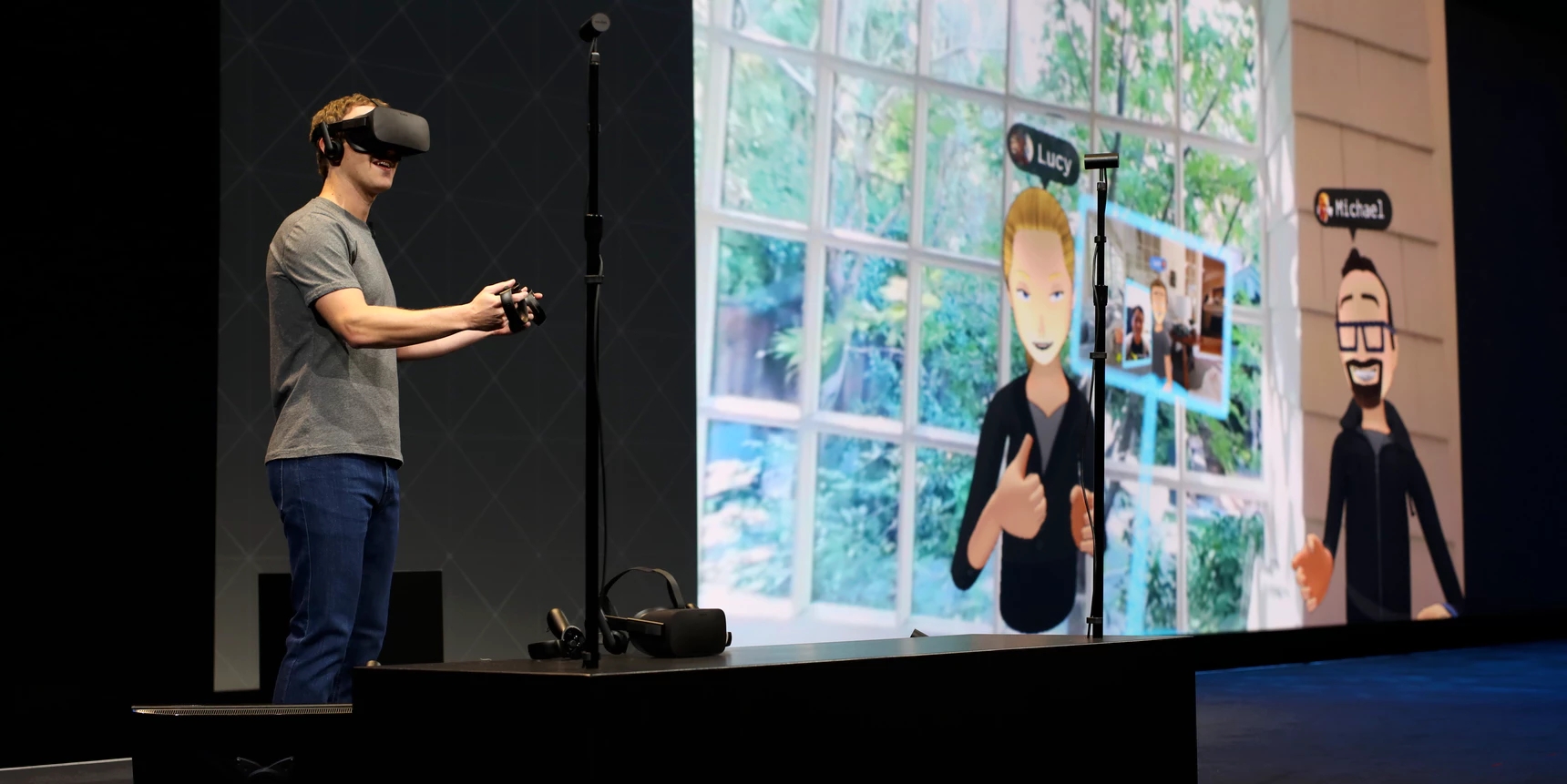Social network of the future with VR versions of your friends
October 08, 2016
The cost of entry for virtual reality hardware has plummeted in the few short months since the launch of the Oculus Rift and HTC Vive in May.
Here's the crazy virtual reality demo I did live on stage at Oculus Connect today. The idea is that virtual reality puts people first. It's all about who you're with. Once you're in there, you can do anything you want together -- travel to Mars, play games, fight with swords, watch movies or teleport home to see your family. You have an environment where you can experience anything.

Yesterday, Zuckerberg reprised his appearance at Oculus Connect. This time, though, the only thing that felt like last year was the gray t-shirt he wore. For starters, there were 2,500 developers in attendance, more than double last year’s turnout.
At the moment, virtual reality is the ultimate isolation. But Facebook hopes that it will become the social network of the future.
Most importantly, though, Zuckerberg slipped on a Rift headset to demonstrate what a Facebook social experience might look like in VR—and in doing so, he made clear that virtual reality’s success wouldn’t hinge on games, or movies, or concerts. It would hinge on other people.
Mark Zuckerberg has finally laid out some of what he plans to do with the virtual reality company that he bought for $2 billion in 2014.
Those are issues for another day, though. For now, the Santa Cruz experience convinced me that, with a little more work, wireless head-tracking is a problem that will be solved in the near future. As mobile processors continue to improve, we'll soon be at the point where a completely wireless headset can provide "good enough" virtual reality complete with convincing tracking driven by internal cameras. Just don't expect it to ever fully match the raw visual quality of a high-end, tethered VR experience.
Facebook also showed off a range of other products apparently intended to make virtual reality easier to buy. At the moment, its Rift headset costs hundreds of dollars, but the company is working on a new wireless headset that could make it far more affordable to users.
That’s huge. It drives the cost of VR-ready PC down to much more reasonable levels, which is essential for making Mark Zuckerberg’s dreams for social VR a mainstream reality. In fact, Iribe also announced a prebuilt Oculus-ready PC built by AMD and CyberPower that will cost just $500, with the aforementioned FX-4350 and a Radeon RX 470.
For Booth, whose 20-year background in video game includes stints at Valve and Blizzard, unlocking the social side of VR is a subversion of everything he’s used to. “In the video game industry, we focused all of our energy on ‘we’re gonna create an experience for you,'” he says. “This is turning that completely around. It’s all about putting people first—connecting with your friends. I think we’re getting pretty close to that.” But for now, there are selfies.
Similar articles:
Publisher: VRExtasy